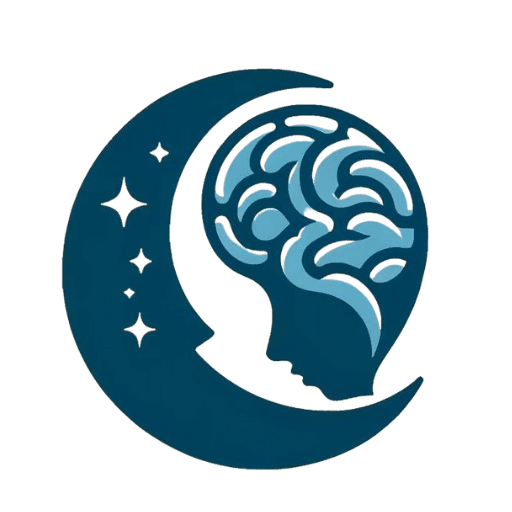Managing blood sugar levels isn’t just about avoiding diabetes or maintaining a healthy weight—it plays a significant role in the quality of your sleep and mental well-being.
Blood sugar fluctuations throughout the day can affect your energy levels, mood, and cognitive clarity, while at night, they can disrupt your ability to fall asleep and stay asleep. By adopting simple, science-backed strategies to stabilize blood glucose levels, you can improve your overall health and achieve more restful sleep.
As a sleep coach, I’ve seen firsthand how blood sugar stability can transform sleep quality. Many of my clients struggle with frequent night wakings, restless sleep, or even difficulty winding down at night, only to find that stabilizing their glucose levels makes a profound difference.
Let’s explore practical ways to balance your blood sugar while understanding how they directly support better sleep and mental clarity.
Why Stable Blood Sugar Levels Matter for Sleep
When blood sugar levels spike and crash, your body responds by releasing hormones like adrenaline and cortisol. These stress hormones can interfere with your sleep-wake cycle, making it harder to relax and fall into restorative sleep. Additionally, low blood sugar during the night may cause you to wake up unexpectedly, leaving you feeling tired and groggy the next day.
I’ve worked with many parents who tell me their babies’ sleep patterns dictate their own, but what often goes unnoticed is how their own blood sugar rollercoaster impacts both their ability to fall back asleep quickly and their overall energy levels. Steady blood sugar levels contribute to a stable mood, better focus, and the calm necessary for good-quality sleep.
Here’s how to manage your glucose levels effectively:
1. Eat Foods in the Right Order
The sequence in which you eat your food can influence your blood sugar response. Start meals with fiber-rich foods like vegetables and legumes, followed by proteins and fats, and finish with starches or sugars. This order slows digestion and absorption of carbohydrates, preventing sharp glucose spikes that could lead to restless energy or late-night wakefulness.
For example, I often suggest that my clients have a salad or some steamed veggies before their pasta. They’re often surprised to find they feel fuller longer and sleep better that night!
2. Choose Savory Breakfasts
The first meal of the day sets the tone for your blood sugar levels. Opt for a savory breakfast high in protein, healthy fats, and fiber—like eggs with avocado or Greek yogurt with nuts and seeds. These choices help prevent mid-morning glucose crashes that can make you feel sluggish and disrupt your natural energy rhythm.
I’ve noticed that clients who switch from a carb-heavy breakfast (like cereal or toast with jam) to a protein-rich meal often experience fewer energy dips and fewer cravings throughout the day. They also report sleeping better at night because their blood sugar stays more stable.
3. Save Desserts for After Meals
Eating sweets on an empty stomach causes rapid blood sugar spikes and crashes, potentially leading to energy slumps and irritability. If you enjoy desserts, have them immediately after a meal. The fiber, protein, and fats in your meal will help buffer the impact of sugar on your glucose levels

4. Use Vinegar to Moderate Blood Sugar
Taking a small amount of vinegar before meals—such as 1-2 teaspoons diluted in water—can reduce post-meal glucose spikes by up to 20%. Vinegar slows digestion of carbohydrates, making it a simple tool to promote better blood sugar balance. Add a vinegar-based dressing to your salad or sip a diluted solution before meals to reap these benefits.
Many of my clients were skeptical about this one at first, but after trying it, they noticed a difference in their afternoon energy levels and fewer sugar cravings later in the day.
5. Engage Your Muscles After Meals
Light physical activity after eating, such as a 10-15 minute walk or simple bodyweight exercises, can help your muscles absorb glucose from the bloodstream, reducing spikes.
This practice not only supports healthy blood sugar levels but also improves digestion and combats post-meal fatigue—helping you unwind and prepare for better sleep later.
6. Pair Carbs with Fiber, Protein, or Fat
When eating carbohydrates, pair them with nutrient-dense foods like proteins, healthy fats, or fiber.
This combination slows digestion and prevents sharp rises in blood sugar, promoting sustained energy and mental clarity throughout the day. For instance, pair fruit with nut butter or whole-grain toast with avocado to keep blood sugar levels stable.
7. Rethink Sugary Drinks
Juices and smoothies, even when labeled “natural,” often cause blood sugar spikes due to their lack of fiber.
Opt for whole fruits instead, as their natural fiber slows sugar absorption and provides a steady energy release. If you prefer juice, choose options with extra pulp to incorporate some fiber back into your drink.

8. Monitor Your Blood Sugar
If you’re looking for additional insights into how your body responds to different foods and lifestyle choices, using tools like continuous glucose monitors (CGMs) can be one of the most impactful ways to create lasting habit changes.
Seeing real-time data on how different meals or activities affect your glucose levels can make it easier to make informed adjustments, like choosing the right meal timing or avoiding certain foods.
Balanced glucose levels can translate into improved sleep quality, steadier energy, and sharper mental clarity—helping you feel your best every day.
How Balanced Glucose Levels Enhance Sleep
When you start implementing these small changes, you might be surprised at how much smoother your nights become. Instead of stress hormones like adrenaline and cortisol messing with your sleep, your body finds a calmer rhythm. And with stable blood sugar, melatonin—the sleep hormone—gets a better chance to do its job, helping you ease into restful sleep without those frustrating wake-ups.
Clients often come to me exhausted from sleep disruptions, not realizing how much their daily eating habits contribute to the problem. Once they begin balancing their blood sugar, they experience fewer nighttime wake-ups, better energy during the day, and an overall improvement in their mental clarity.
Conclusion
Blood sugar balance is a cornerstone of holistic health that extends far beyond metabolic well-being. It supports mental clarity, mood stability, and restorative sleep—all essential components of a healthy lifestyle. By taking small, consistent steps to stabilize your glucose levels, you can achieve better sleep and wake up feeling refreshed and ready to tackle the day.
If you’ve been dealing with fragmented sleep or brain fog, why not give some of these simple habits a try? I’ve seen it time and time again—just a few small tweaks can make a huge difference in how you feel, not just at night but throughout your entire day.
For more tips and insights on improving sleep follow me on Instagram.
Explore my 1:1 support options, and let’s work together to create a personalized plan to help you improve your sleep and energy levels—so you can feel more rested and refreshed every day.

